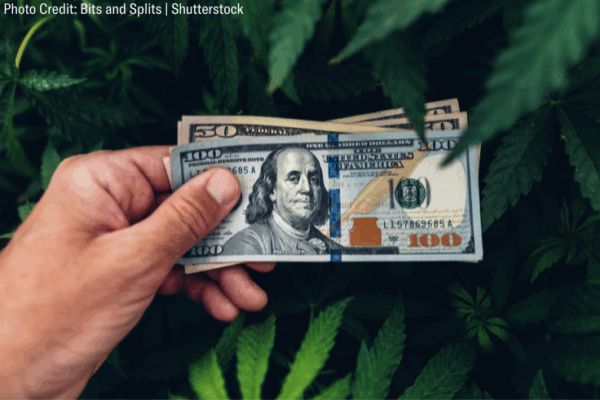A day before recreational sales of cannabis begin, this might be the most momentous 4/20 in New Jersey history. But sales are only one part.
We’re at a pivotal crossroads for cannabis between now and the signing of the budget in June, because the negotiations taking place will decide for the first time where specifically cannabis tax revenue for social justice goes. These conversations determine whether cannabis legalization serves justice, and, more importantly, whether it begins the work of repairing the damage of prohibition and reinvesting in the communities most harmed by the drug war.
On 4/20, we have a duty to tell our officials how they can fulfill that promise – and we hope you’ll contact them now. At the ACLU-NJ, we’ve taken stock of some of the steps our lawmakers can take to make sure that the social justice priorities that were so essential to ending marijuana prohibition remain at the heart of legalization as it’s implemented.
The first step for lawmakers, above all, is to follow the lead of communities on how dollars reserved for social justice should be used. That requires an inclusive and participatory process that actively solicits input from those most impacted by marijuana prohibition through budget hearings, outreach to community groups and grassroots organizations, listening sessions in impact zone communities, and conversations with community leaders. It calls for careful accounting to make sure the funding allocated ends up where it’s supposed to, with every dollar of funding going directly to community resources. The law identifies 87 of New Jersey’s 565 municipalities as impact zones, which would be the focus of this funding. These are the communities they should engage with directly.
The law stipulates that 100 percent of an excise fee and nearly 60 percent of sales tax from cannabis must fund community reinvestment, and it’s essential that these funds go directly to build up communities who have been most harmed by the criminalization of marijuana. One factor rises above all the others in deciding what justice does and does not look like, and that’s enlisting – and listening to – impacted communities themselves.
To build up communities harmed by the drug war, New Jerseyans need investments toward essential functions like social services, housing and food assistance, childcare, tuition assistance, and harm-reduction programs. (You can read the ACLU-NJ’s statement today discussing these types of services and programs, among others, that can begin to advance social justice as spelled out in the law and regulations.)
We cannot allow any cannabis revenue slated for community reinvestment to go toward police departments, law enforcement, or the criminal legal system. That means we have to strike budget items that allocated cannabis revenue to law enforcement purposes – and it’s important for us as advocates to emphasize why we believe this would threaten social justice and community safety rather than support it.
To create access to ownership in the new cannabis industry for people who have borne the harms of aggressive enforcement of prohibition, New Jersey must provide programs designed to foster equity, such as financial assistance, technical assistance, and employment and mentorship programs to social equity, impact zone, and diversely owned businesses, as well as supplemental grants for municipalities that have chosen to implement local programs aimed at increasing equity in the cannabis industry.
The legitimacy of the cannabis industry hinges on what the Legislature and Governor Murphy do next. And what the Legislature does next depends on us. You can take action today by contacting them here and encouraging them to fund initiatives that truly serve racial and social justice.
A key driver of legalization at every step – from placing the question on the ballot, to winning the yes vote in 2020 by historic margins, to passing and signing legislation, to drafting regulations for the new marketplace – has been the promise of using revenue to begin to address the harm in communities that have faced the brunt of the racially unjust war on drugs. In New Jersey, Black people were arrested at a rate more than 3.5 times higher than that of white people for marijuana possession, despite similar usage.
It’s critical at this moment for all New Jerseyans to engage with the budget process and join us in calling for a real fiscal commitment to racial and social justice. We need to make sure New Jersey takes the social justice requirements of the law seriously, and keeps the racial justice concerns that led to legalization at the fore. A budget embodies our values, and we need to see actions as powerful as the civil rights ideals that led to legalization. Please contact state leadership about the need to fund community reinvestment with an emphasis on justice today.
This work to pass a budget that truly invests in communities and reflects our values, sets a tone for the activism yet to come – especially as municipalities set local rules around cannabis and the Cannabis Regulatory Commission lays out final regulations statewide. New Jersey has the opportunity to get justice and equity right from the start, and to set a national example for cannabis justice.
After years of work to pass a legalization framework that prioritizes social justice not just through changes in policy, but also through significant financial backing to advance racial and social justice, we have to make sure to get this moment right. We have to keep up the pressure. We have to pass a budget that gives justice its due by lifting up those who have lived under injustices for far too long.


